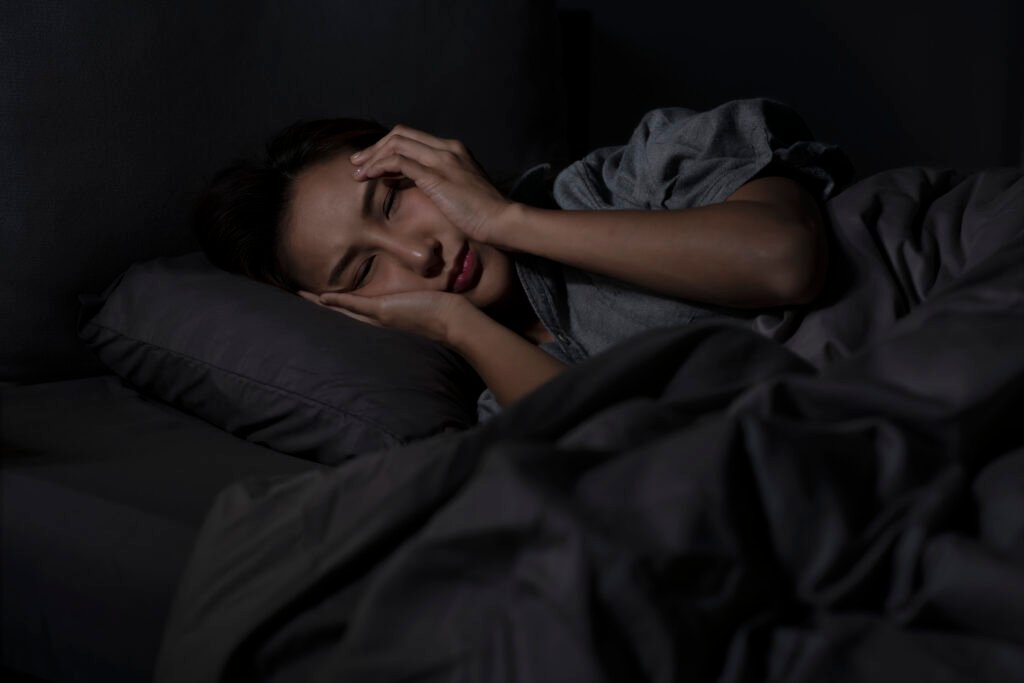Despite the fact that sleep is a basic component of health, studies reveal that women sleep less than men. This discrepancy has its roots in biological variations that impact health rather than merely lifestyle decisions or social roles. The reasons why females sleep less and the effects it has on their general health range from hormonal changes to variations in the architecture of sleep.
The causes of sleep disparities, their effects on health, and methods for enhancing women’s sleep quality will all be covered in this article.
Why Do Females Sleep Less?
1. Hormonal Fluctuations and Sleep Patterns
One of the primary reasons why females sleep less is their hormonal cycle. Sleep quality is also influenced by the menstrual cycle-regulating hormones progesterone and estrogen. During their cycles, women have varying sleep patterns:
- Follicular Phase (Before Ovulation): Higher estrogen levels promote better sleep.
- Luteal Phase (After Ovulation): Increased progesterone can lead to sleep disturbances, such as night sweats and difficulty staying asleep.
- Menstruation: Many women experience poor sleep due to cramps, hormonal shifts, and mood changes.
Hormonal changes during pregnancy and menopause further disrupt sleep, making females sleep less than their male counterparts at different life stages.
2. Higher Risk of Insomnia
Insomnia is 1.5 times more common in women than in men, according to studies. The inability to get or stay asleep, known as insomnia, is associated with biological variations and has an impact on health consequences.
Reasons why females sleep less due to insomnia include:
✔ Increased stress and anxiety – Women are more prone to anxiety, which disrupts sleep.
✔ Circadian rhythm differences – Women tend to have an earlier sleep-wake cycle, making it harder to adapt to late-night routines.
✔ Sensitivity to environmental stimuli – Women wake up more frequently due to light, noise, or discomfort.
3. Sleep Disruptions from Caregiving and Workload
The caring and home duties that women perform are another factor contributing to their lower sleep levels. Women are inclined to get up in the middle of the night to care for elderly family members or youngsters, according to studies.
In addition, many women skip on sleep in order to manage their personal, professional, and family obligations. Chronic sleep deprivation results over time, which has an impact on general health.
How Biological Differences Affect Health When Females Sleep Less

Since females sleep less, they face a higher risk of several health issues compared to men. Here’s how biological differences affect health when sleep is inadequate:
1. Increased Risk of Heart Disease
Heart disease risk factors include elevated blood pressure, inflammation, and stress hormones, all of which are exacerbated by sleep deprivation. Women have become more prone to cardiovascular diseases, and getting too little sleep can make matters worse.Then.
2. Higher Rates of Anxiety and Depression
There is a strong correlation between sleep and mental health, and women are more likely to suffer from anxiety and depression because they sleep less. Sleep deprivation raises mood disorders via influencing serotonin and dopamine levels.
✔ Women with chronic insomnia have double the risk of developing depression.
✔ Poor sleep leads to increased emotional reactivity and stress levels.
3. Weight Gain and Metabolic Issues
When females sleep less, their bodies produce more ghrelin (hunger hormone) and less leptin (fullness hormone), leading to increased cravings and overeating. This increases the risk of:
✔ Obesity – Poor sleep disrupts metabolism and encourages weight gain.
✔ Type 2 Diabetes – Insufficient sleep affects insulin sensitivity.
4. Weakened Immune System
Adequate sleep is crucial for immune function, and since females sleep less, they may have weaker immune responses. This means they are more prone to infections, colds, and chronic inflammation, affecting long-term health.
How to Improve Sleep for Better Health
It’s critical to use healthy sleep practices if biological factors cause women to sleep less. Despite biological variations that impact health, the following strategies can help you get the most out of your sleep:
1. Maintain a Consistent Sleep Schedule
Because women’s circadian rhythms are inherently shorter, routine is essential. Hormones are regulated and sleep efficiency is increased when you go to bed and wake up simultaneously.
.
2. Optimize Hormonal Balance
✔ Diet & Nutrition: Eat magnesium-rich foods (almonds, spinach) and avoid caffeine before bed.
✔ Exercise: Engage in moderate exercise, but avoid intense workouts at night.
✔ Stress Management: Practice meditation, yoga, or deep breathing to lower cortisol.
3. Improve Sleep Environment
Since females sleep less, they must create an optimal sleep setting:
✔ Use blackout curtains to block light.
✔ Maintain a cool room temperature (60–67°F).
✔ Use a comfortable mattress and pillow that supports posture.
4. Address Underlying Health Issues
If hormonal imbalances, menopause, or chronic stress contribute to why females sleep less, consulting a doctor for hormone therapy, supplements, or lifestyle adjustments may help.
Conclusion: Prioritize Sleep for Better Health
Women often face unique challenges when it comes to sleep, and understanding the biological factors at play can be the first step in improving your health. If you’re finding it difficult to get the restful sleep you need, it may be time to take action. Contact Kairos Health and Wellness today to learn more about how we can help you address sleep-related issues specific to women and explore ways to improve your overall well-being.
By reaching out today, you can take the first step toward embracing healthier sleep habits tailored specifically for you. Your well-being deserves it!


